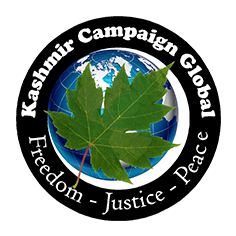 People of Kashmir have never accepted what they consider to be an illegal occupation by India; several peaceful protests by civilians, such as those in 1953, 1964, and 1988, have witnessed a deadly response by Indian security and military forces, including the indiscriminate use of pellets, bullets, shells and tear gas, not to mention numerous human rights violations, such as rape, torture, enforced disappearances and ambushes by the Indian military.
People of Kashmir have never accepted what they consider to be an illegal occupation by India; several peaceful protests by civilians, such as those in 1953, 1964, and 1988, have witnessed a deadly response by Indian security and military forces, including the indiscriminate use of pellets, bullets, shells and tear gas, not to mention numerous human rights violations, such as rape, torture, enforced disappearances and ambushes by the Indian military.
In 1989, following the abandonment of democratic reforms by India, an insurgency intensified the struggle for the right to self-determination. Since then, many demonstrations and protests involving virtually the entire population of Jammu and Kashmir has rightly expressed its collective outrage over India’s draconian measures. India continues to try and portray this popular resentment as ‘terrorism’, perhaps conveniently forgetting that terrorists are neither composed of entire populations, including women and children, nor do they look to the UN and international community to fulfil an outstanding promise for a peaceful and rational settlement.
Torture, rape, arbitrary molestation of citizens exercising their fundamental rights to free speech and free movement, forced disappearances, and fake encounter killings in which individuals are executed in cold blood by Indian security forces who then claim that the killing, admitted as having occurred, took place during a gun battle or similar scenario – all these clearly illegal and disproportionate measures by the Indian State apparatus are commonly practiced by Indian armed forces under the false pretext of ‘fighting terrorism’.
Indeed, during the last thirty years, over 100,000 civilians have been killed, over 10,000 women have been raped and/or sexually assaulted, countless civilians have been imprisoned and unlawfully detained, a reported 7,000 mass graves full of unidentifiable bodies have been discovered, billions of rupees in property has been damaged, the media has been severely curtailed with limitations imposed even on international reporting, and international NGOs are either not allowed, or are otherwise prevented from working in Kashmir.

